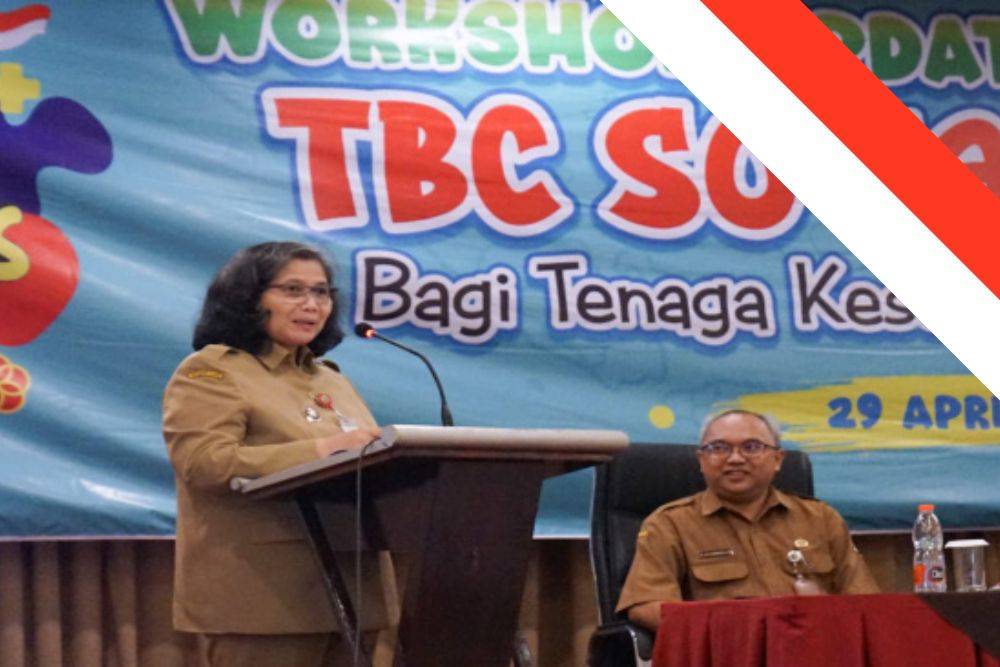Tuberculosis cases are rising significantly in Kediri. Acting Mayor Zanariah has since taken bold steps to combat this pressing health crisis.
Learn about her strategies and collaborative efforts to tackle Tuberculosis prevalence head-on.
Combating Tuberculosis
Tuberculosis (TB) persists as a global health challenge, affecting millions worldwide. Despite medical advancements, TB remains a leading cause of morbidity and mortality, particularly in developing countries. The prevalence of TB is notably high in regions with limited access to healthcare and resources. Effective management of TB requires a multifaceted approach, encompassing prevention, diagnosis, treatment, and community engagement. Governments, healthcare professionals, and communities must collaborate to curb the spread of TB and improve outcomes for those affected. In this article, we delve into the intricacies of TB management, exploring strategies for prevention, early detection, and patient care.
Understanding Tuberculosis
TB is caused by Mycobacterium tuberculosis, a bacterium that primarily affects the lungs but can also target other organs. The disease spreads through the air when an infected individual coughs or sneezes, releasing bacteria-laden droplets. Factors such as overcrowded living conditions, poor ventilation, and weakened immune systems increase the risk of TB transmission. Individuals with latent TB infection carry the bacteria but do not exhibit symptoms or spread the disease. However, latent TB can progress to active TB if left untreated, posing a threat to public health.
Prevention Strategies
Preventing TB transmission is essential for reducing its burden on society. Vaccination with the Bacille Calmette-Guérin (BCG) vaccine is a key preventive measure, particularly in high-burden areas. BCG vaccination reduces the risk of severe forms of TB in children and provides partial protection against TB infection in adults. Additionally, promoting respiratory hygiene, ensuring adequate ventilation in living spaces, and identifying and treating latent TB infection can help prevent the spread of TB. Public health campaigns aimed at raising awareness about TB transmission and prevention are also crucial in fostering community engagement.
The Kediri administration will increase the capacity and ability of health workers and cadres in efforts to prevent and control TB. Additionally, the Health Service also held a Workshop on Procedures for Handling TB.
Early Detection and Diagnosis
Timely diagnosis is critical for initiating prompt treatment and preventing the spread of TB. Healthcare providers employ various diagnostic tests, including chest X-rays, sputum microscopy, and molecular tests, to identify TB infection. Rapid diagnostic tools such as GeneXpert MTB/RIF offer quick and accurate detection of TB and drug resistance, facilitating timely intervention. Screening high-risk populations, such as individuals living with HIV/AIDS or those in close contact with TB patients, can aid in early detection efforts. Furthermore, promoting access to diagnostic services and implementing point-of-care testing in resource-limited settings can improve TB diagnosis rates.
Treatment Approaches
The cornerstone of TB treatment is a combination of antibiotics known as directly observed therapy, short-course (DOTS). Standard TB treatment consists of a 6-month regimen of four first-line drugs: isoniazid, rifampicin, ethambutol, and pyrazinamide. Adherence to treatment is paramount to prevent drug resistance and treatment failure. Healthcare providers monitor patients closely and may adjust treatment regimens based on drug susceptibility testing results. In cases of drug-resistant TB, second-line drugs are used, although treatment duration may be longer and side effects more pronounced. Patient education and support services are essential to ensure adherence to treatment and optimize outcomes.
Acting Mayor Zanariah stated, “We at the Kediri City Government are serious about handling this TB case. I want this TBC to be completely resolved. “We need collaboration from all parties to achieve the city of Kediri free from TB.”
Community Engagement and Support
Engaging communities is vital for promoting TB awareness, reducing stigma, and facilitating treatment adherence. Community health workers play a crucial role in delivering TB education, conducting screenings, and supporting patients throughout their treatment journey. Peer support groups provide a platform for individuals affected by TB to share experiences, seek advice, and access resources. Additionally, leveraging digital health technologies, such as mobile applications and telemedicine, can enhance access to TB services, especially in remote or underserved areas. Empowering communities to take ownership of TB prevention and control efforts fosters sustainable change and strengthens health systems.
Research and Innovation
Continued investment in TB research and innovation is essential for developing new diagnostic tools, treatments, and vaccines. Novel approaches, such as shorter and more tolerable drug regimens, point-of-care diagnostics, and TB vaccines, hold promise for accelerating progress towards TB elimination. Collaborative partnerships between governments, academia, pharmaceutical companies, and non-profit organizations are key to advancing TB research agendas and overcoming existing challenges. By prioritizing research and innovation, we can usher in a new era of TB control and ultimately eradicate this disease.
Conquering Tuberculosis
Tuberculosis remains a formidable global health threat, but concerted efforts can turn the tide against this ancient disease. Through comprehensive prevention, early detection, and patient-centered care, we can mitigate the impact of TB on individuals, communities, and health systems. By fostering collaboration, innovation, and community engagement, we move closer to realizing a world free from the burden of tuberculosis. Together, we can conquer TB and build a healthier, more resilient future for all.
Photo Credit: kedirikota.go.id
Have a pressing question for a doctor? Medical Channel Asia has launched a community forum page where you can get questions answered by a medical specialist. Visit the community forum here.

